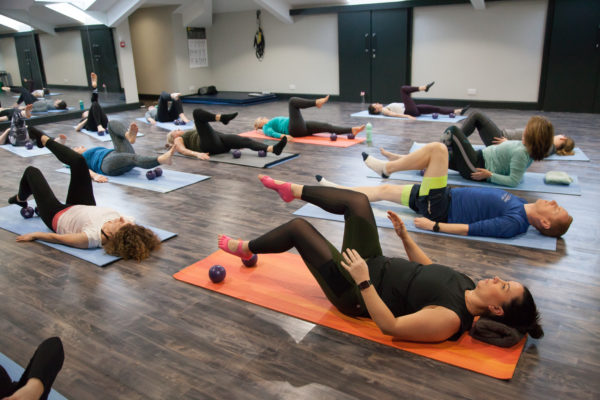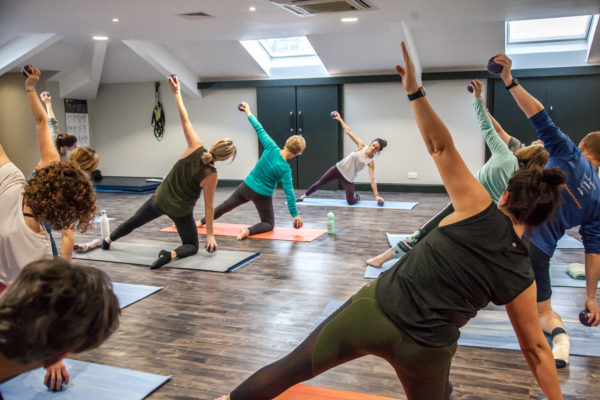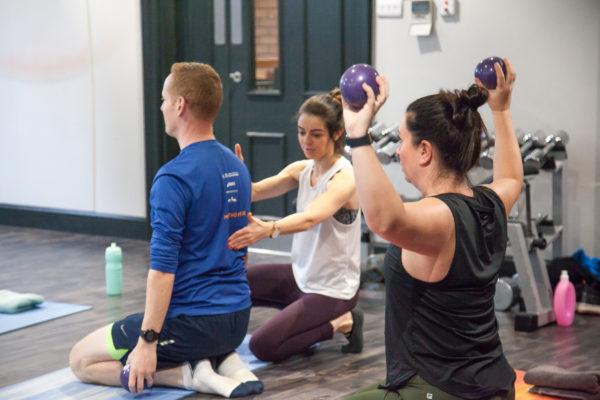Pilates is good for your health, and now the science can proof it. We all know exercise is important for a healthy body and mind and the endorphins make us feel good too. Well, just recently new research has been published to prove that pilates has a significant impact on your medical health too! Although we knew this already it’s great to have it backed up by scientific research.

Pilates & the medical benefits
Pilates is a matwork based exercise that works with the mind-body connection, and moves from the core to provide strength & mobility benefits to the whole body. It also uses a specific breathing pattern to ensure efficient activation of the core muscles so that they are working at their optimal.
It is perhaps this holistic, comprehensive approach that allows pilates to have a significant effect on our body’s cardiovascular system. One single session of a pilates class has now been proven to reduce blood pressure by 5-8mmHg in the first 60 minutes following the class! (1). It has even been suggested that regular pilates could be used as an alternative modality to lowering blood pressure in those who have hypertension (high blood pressure). (Always seek advice from your G.P first).

How exactly does pilates cause this relaxation effect?
Each exercise in pilates is performed with precision and you learn to exhale and inhale at certain times to enhance muscle efficiency. As the exercises become harder to complete, your breathing may speed up, so pilates breathing techniques teach you to control this and remain calm with a steady breath.
Pilates teaches the body to move in a structured and efficient way using the least amount of energy. This allows you to work at higher intensities but using less oxygen consumption. As you move through the exercises your muscles are lengthened and strengthened. The continuous exercise requires slower, controlled breathing and this unique combination relaxes the autonomic nervous system. It does this by reducing the sympathetic activity (responsible for adrenaline production and increased heart rate), and stimulating the parasympathetic system (2).
The parasympathetic system is responsible for counteracting stress and adrenaline; it tells muscles to relax and lowers blood pressure and heart rate. This focus then relaxes the mind and enforces awareness in that present moment. This can mentally clear your thoughts and minimise stress levels.

Furthermore, practise of pilates style breathing after completion of a long exercise session can improve your immune system. Prolonged exercise alters the hormone balance by raising cortisol levels (a hormone that is released during stress and suppresses the immune system) and subsequently increases oxidative stress (the stress at a cellular level). However relaxed, deep breathing post-workout has been shown to lower the level of cortisol and also increase melatonin production (melatonin is a strong antioxidant that reduces oxidative stress and protects the body from free radicals- harmful chemicals that can weaken immunity) (3).
Pilates breathing can also improve your lung strength. Pilates teaches inhalations through the nose, providing resistance to the breath from the small nostril hairs. This trains and strengthens the respiratory muscles specifically as they have to overcome this regular resistance. Athletes who incorporate regular pilates into their training have shown higher lung functions (4).
A reduction in stress, anxiety, worry, and blood pressure, along with boosts in lung function and your immune system are some of fantastic medical benefits that pilates can give you!
To read more about other benefits of pilates click these links here:
References:
- Journal Strength & Conditioning Research. Jan 2020. 34(1): 114-123.
- Indian J Physiol Pharmacol. 2013; 57(2):153-158.
- Complement Alternat Med. 2011; Article ID932430:1-10.
- Indian J Physiol Pharmacol. 2007; 51(1):76-80.
